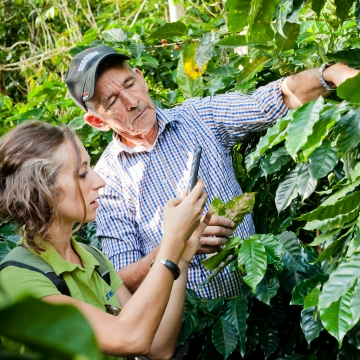Risk preferences and poverty traps in the uptake of credit and insurance amongst small-scale farmers in South Africa
We use a series of framed experimental games to test the role of access to credit and insurance on farm technology uptake with small-scale farmers in South Africa. Using Cumulative Prospect Theory ‘CPT’, we assess how insurance impacts technology uptake given risk preferences. Our findings suggest that risk aversion is linked to lower uptake of the uninsured and insured technology, while loss averse farmers are more likely to adopt technology bundled with insurance.



